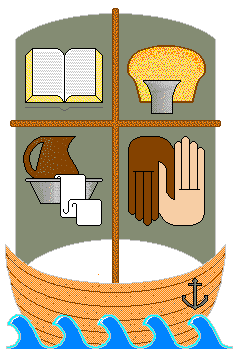Balaam
- Balaam (the Greek form) means subverter, or devourer of the people. The Hebrew: name is Bilam (OT:1109), meaning “not of the people; devourer, or foreigner” (Numbers 22:5).
- Balaam was the son of Beor, a king of Edom (Genesis 36:31-32).
- He settled in Pethor, beyond the river Euphrates in Mesopotamia (Numbers 22:5; Numbers 23:7; Deut. 23:4).
- Having a widespread reputation of being able to prophesy and pronounce a curse or blessing on people, he was called by Balak, king of Moab, to curse Israel (Numbers 22:5-6).
- Elders or princes of two nations were sent to offer him rewards for cursing Israel (Numbers 22:7; 2 Peter 2:15).
- He seems to have known God, for his first answer expressed a desire to inquire as to what God’s will would be regarding Balaam’s going with the princes to curse Israel (Numbers 22:8).
- God spoke to him and revealed that His will was NOT to go and NOT to curse Israel, for they were blessed by Him (Numbers 22:9-12).
- He was faithful to report the truth to the princes that God refused to let him go (Numbers 22:13-14).
- More honorable princes were sent to Balaam with promises of greater riches and much honor if he would only come (Numbers 22:15-17).
- He was faithful to reject such worldly honors, being consecrated enough to God at the time not to disobey Him for riches. However, by agreeing to inquire again of the Lord after knowing already His will, he revealed a secret desire for reward and going as far as he dared, instead of definitely ending all negotiations (Numbers 22:18-19).
- Knowing that Balaam would eventually yield and go anyway, God answered him at night, giving him conditional permission: he was to speak only as directed (Numbers 22:20).
- Balaam was to rise up and go (to bless and not to curse Israel) if the men came to call him (Numbers 22:20).
- He did not wait for this, but rose up, being anxious to go. God’s anger was kindled because of this, so He opposed Balaam in the way (Numbers 22:21-33).
- Balaam finally saw the angel of the Lord and acknowledged his sin, offering to go back; but God allowed him to proceed, warning him again to speak only what He would reveal to him (Numbers 22:34-35).
- Balaam was again faithful, making it clear that he was powerless to say anything which God would forbid him to speak (Numbers 22:36-38).
- He got his first glimpse of Israel from one of the high places of Baal (Numbers 22:39-41).
- Balaam sacrificed to God, not Baal, and he expected an answer from God (Numbers 23:1-3).
- God did meet him and Balaam told Him of his sacrifices to Him (Numbers 23:4). These were of clean animals, indicating that Balaam understood God’s requirements.
- God put a word of prophecy in Balaam’s mouth and he delivered it faithfully to Balak (Numbers 23:5-10).
- He was willing to incur the wrath of Balak to speak what God gave him (Numbers 23:11-12).
- Balaam again had sacrifices offered and went to meet the Lord (Numbers 23:13-15).
- God met him again and put a word of prophecy in his mouth which he faithfully spoke to Balak (Numbers 23:16-24).
- He incurred the wrath of Balak by speaking the truth again (Numbers 23:25-26).
- Another time Balaam sacrificed to the Lord and waited for His word (Numbers 23:27-24:1).
- The Spirit of God came upon Balaam, and he prophesied of Israel (Numbers 24:2-9).
- He then incurred the wrath of Balak again and was ordered out of Moab (Numbers 24:10-13).
- Before leaving Moab, Balaam gave Balak one more prophecy regarding what Israel would do to Moab in the latter days (Numbers 24:14-24).
- Again he was tempted to get the reward he was offered and he finally yielded to the point of teaching Balak how to tempt Israel to sin so that God would curse them Himself (Numbers 22:7,17-18; Numbers 24:11-13; Numbers 25:1-18; Numbers 31:16;Deut. 23:4-5; Joshua 24:9-10; Neh. 13:2; Micah 6:5; 2 Peter 2:13-16; Jude 1:11; Rev. 2:14).
- He returned to his home after having gained a reward by teaching Balak to ensnare Israel in sin (Numbers 24:25; 2 Peter 2:15; Jude 1:11; Rev. 2:14).
- Balaam is called a “soothsayer” (Joshua 13:22) and it seems that he finally became one, but not until he sold out to Balak for the reward and betrayed God and Israel.
- He ended his life as an ally of Midian fighting Israel (Numbers 31:8; Joshua 13:22).
- He was upright at first, but went astray because he “loved the wages of unrighteousness” (2 Peter 2:16).
- At one time, Balaam a true prophet (2 Peter 2:16).
- He went into error for reward (Jude 1:11).
- He taught the wrong doctrine for reward (Rev. 2:14).
From the above we conclude that Balaam was a prophet of God to begin with, being used by Him to make the prophecies of these chapters, after which he went into error and became a soothsayer (Joshua 13:22; Jude 1:11), like Saul who went into witchcraft after the Holy Spirit left him (1 Samuel 10:9-14; 1 Samuel 16:14; 1 Samuel 28:1-25; 1 Chron. 10:13-14). Inquiring of the Lord whether he should go or not; his willingness to go back when he met the angel, and to say exactly what God told him to; sacrificing to God and meeting Him after every sacrifice; having the Spirit of God come upon him; receiving words of prophecy like other true prophets; falling into a trance; being called a prophet, and calling the Lord “my God” (Numbers 22:18)-these and other facts prove Balaam was a true prophet until he forsook the right way, and went astray into error.
